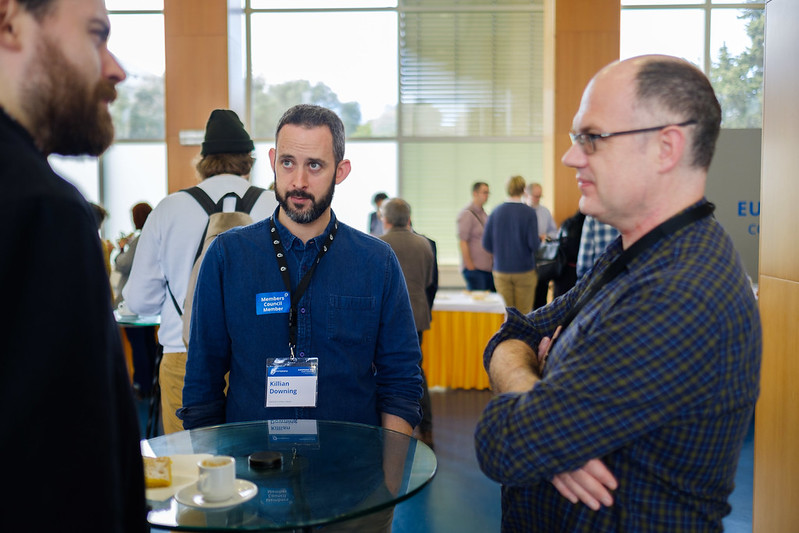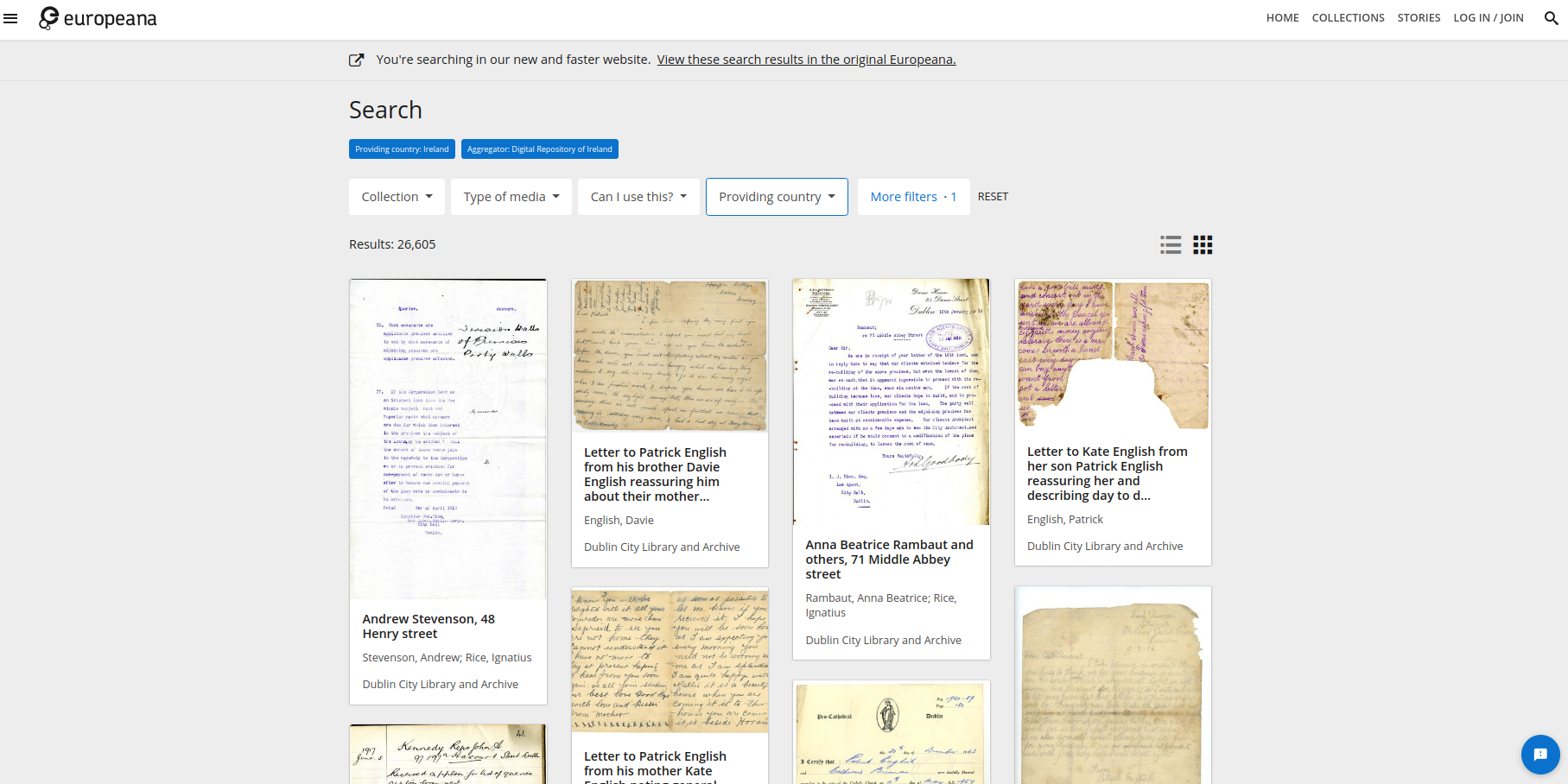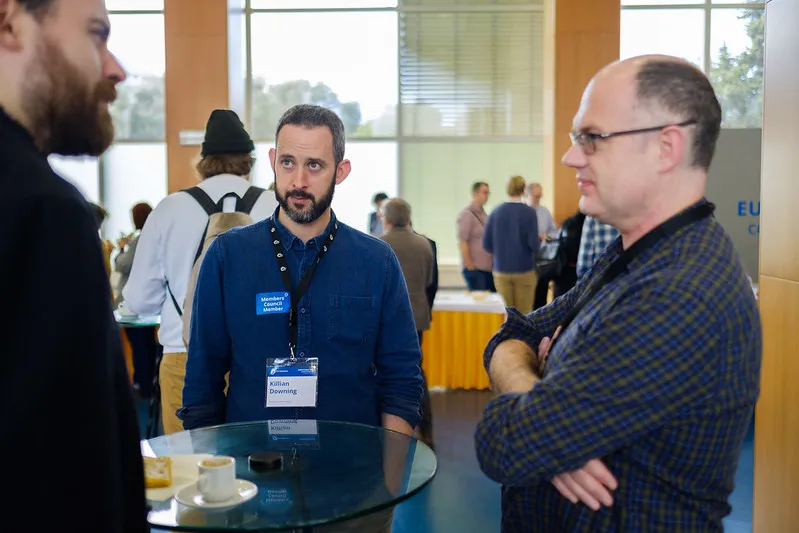In the latest blog in our #DRI10 series, DRI Software Engineer Dr Kathryn Cassidy reflects on our involvement in the Europeana Common Culture project, which led to us becoming an accredited Europeana National Aggregator.
The Digital Repository of Ireland (DRI) was formed ten years ago in September 2011. It was originally funded through a PRTLI (Programme for Research in Third-Level Institutions) Cycle 5 funding grant. In this phase (2011-2015), DRI was built by a research consortium of six academic partners. It was officially launched in June 2015 and continues to be managed by three core academic institutions – Royal Irish Academy, Trinity College Dublin, and Maynooth University. To mark our ten-year anniversary, DRI staff members are writing a blog a week focusing on different DRI milestones achieved over the past ten years. This is the ninth blog in the #DRI10 celebratory blog series.
From early on in the Digital Repository of Ireland’s (DRI) existence, we wanted to work with Europeana, a digital platform that allows European institutions to reach a wider audience by sharing their social and cultural heritage online. Europeana fit well with our own mission to preserve and promote Irish content to a wider audience.
In 2013, we developed the Location LODer application, which demonstrated the benefits of linked data using the newly launched Linked Data version of the authoritative bilingual database of Irish place names, logainm.ie, developed by the DRI, Insight at National University of Ireland, Galway (previously Digital Enterprise Research Institute [DERI]), Fiontar at Dublin City University, the National Library of Ireland, and the Placenames Branch of the Department of Arts, Heritage and the Gaeltacht.
The Location LODer website provided an interactive map where visitors could explore Irish place names, linked with historical context and maps, images and contemporary data from sources such as Europeana, Wikipedia, the Irish Historic Towns Atlas, and the National Library of Ireland. The application was one of the first to use the Europeana API to retrieve objects from Europeana, allowing relevant Europeana content to be displayed for locations around Ireland.
It was over five years later, however, before we were able to deepen our involvement with Europeana by developing our Europeana Aggregation service as part of the Europeana Common Culture project. This led to DRI becoming an accredited Europeana National Aggregator in October 2019.

Image: Some of the Irish contingents catch up over coffee at the 2019 Europeana Conference. Left-Right: Dáire Rooney (DRI), Killian Downing (DCU Library), Padraic Stack (DCLA)
Attribution: Europeana 2019 – Connect Communities, National Library of Portugal, Lisbon 27-29 November, photo by Sebastiaan ter Burg, CC-BY-4.0
Since then, we have aggregated over 26,600 objects from diverse institutions including Dublin City Library and Archive, Transport Infrastructure Ireland (TII), Irish Qualitative Data Archive, Cork LGBT Archive, Royal Irish Academy, University College Cork, Arts and Culture in Education Research Repository, Monaghan County Council, National Irish Visual Arts Library (NIVAL), and the Oireachtas Library.

Image: Objects aggregated from DRI to Europeana from a range of Irish organisations
We have contributed to a number of editorials published on the Europeana platform such as the Celebrations in Europe exhibition and blog posts and articles on Jacob’s Biscuit Factory, the history of the LGBT community in Cork, 3D data, and Europeana activities in Ireland. We’ve also run several Europeana-focused events over the past two years, including three online events, the recordings of which can be accessed below:
- Using FAIR Data from the GLAM sector (in collaboration with Europeana Research and RDA Ireland)
- Publishing GLAM data as FAIR data (in collaboration with Europeana Research and RDA Ireland)
- DRI and the Europeana Common Culture Project: Sharing Irish Digital Data in a European Context
Over the summer of 2020, while sports training and events were all shut down due to COVID-19 restrictions, DRI worked with cultural heritage institutions and sporting organisations to collect stories of sport in Ireland for the Europeana Sport season.
We are continuing to engage with Europeana in a variety of ways, most notably, via our participation in the EnrichEuropeana+ project which runs from the 1st of April 2021 to the 30th of September 2022 and aims to enhance the Transcribathon Platform as a service for cultural heritage institutions. We hope to be involved in running Transcribathon citizen science events both in Ireland and online, to get members of the public involved in transcribing 19th-century handwritten text, and offer this as a service for member organisations.
In the meantime, please explore the Irish content available on Europeana and if you are a member of an organisation that would like to share your content via Europeana, please get in touch with us at dri@ria.ie.
By DRI Software Engineer Kathryn Cassidy




